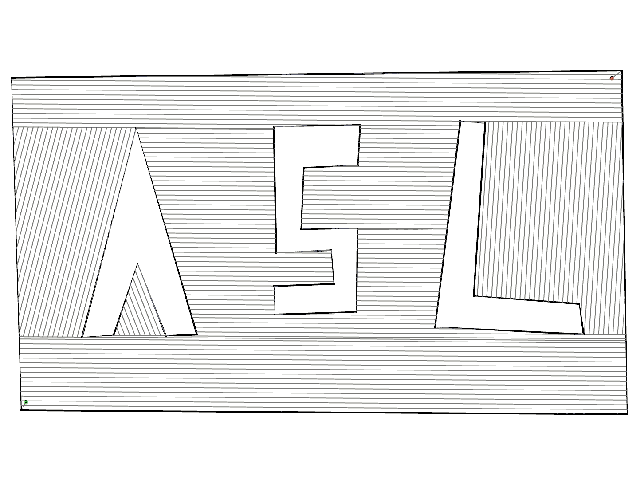This package contains implementations to compute coverage patterns and shortest paths in general polygon with holes. Please cite our accompanying publication when using it.
Bähnemann, Rik, et al.
"Revisiting boustrophedon coverage path planning as a generalized traveling salesman problem."
Field and Service Robotics. Springer, Singapore, 2021.
Install ROS melodic. Install mono.
Create a workspace.
cd ~
mkdir -p catkin_ws/src
cd catkin_ws
catkin init
catkin config --cmake-args -DCMAKE_BUILD_TYPE=Release
catkin config --extend /opt/ros/melodic
Download package dependencies from dependencies.rosinstall.
Note: If you have not setup SSH keys in GitHub use dependencies_https.rosinstall.
cd ~/catkin_ws/src
wstool init
wstool set --git polygon_coverage_planning git@github.com:ethz-asl/polygon_coverage_planning.git
wstool update
wstool merge polygon_coverage_planning/install/dependencies.rosinstall
wstool update
Install all remaining dependencies:
cd polygon_coverage_planning/install
./prepare-jenkins-slave.sh
Finally, build the workspace.
catkin build
The package has a ROS interface for shortest path planning and coverage planning. First source your workspace to execute any of the nodes.
source ~/catkin_ws/devel/setup.bash
roslaunch polygon_coverage_ros coverage_planner.launch
The polygon can be set via
- ROS service call
rosservice call /coverage_planner/set_polygon - ROS parameter
/coverage_planner/polygonor - RVIZ Polygon Tool as in the video above.
The plan is generated via
- ROS service call 'rosservice call /coverage_planner/plan_path' or
- clicking start and goal points using the RVIZ clicked_point tool as in the video above.
roslaunch polygon_coverage_ros shortest_path_planner.launch
Setting the polygon and planning the path is the same as for Coverage Planning.
This repository is subject to GNU General Public License version 3 or later due to its dependencies.
The underlying (exact) geometric operations rely on CGAL 5.0.3 which is restricted by GNU General Public License version 3 or later. In particular the dependencies are:
- Algebraic Foundations (LGPL)
- 2D and 3D Linear Geometry Kernel (LPGL)
- 2D Polygon (LPGL)
- Geometric Object Generators (LPGL)
- STL Extensions (LGPL)
- 2D Triangulation (GPL)
- 2D Regularized Boolean Set-Operations (GPL)
- 2D Straight Skeleton and Polygon Offsetting (GPL)
- 2D Arrangement (GPL), see also
Fogel, Efi, Dan Halperin, and Ron Wein. CGAL arrangements and their applications: A step-by-step guide. Vol. 7. Springer Science & Business Media, 2012.
Bungiu, Francisc, et al. "Efficient computation of visibility polygons." arXiv preprint arXiv:1403.3905 (2014).
The underlying optimization uses the memetic solver presented in
Gutin, Gregory, and Daniel Karapetyan.
"A memetic algorithm for the generalized traveling salesman problem."
Natural Computing 9.1 (2010): 47-60.
It is free of charge for non-commercial purposes only.

